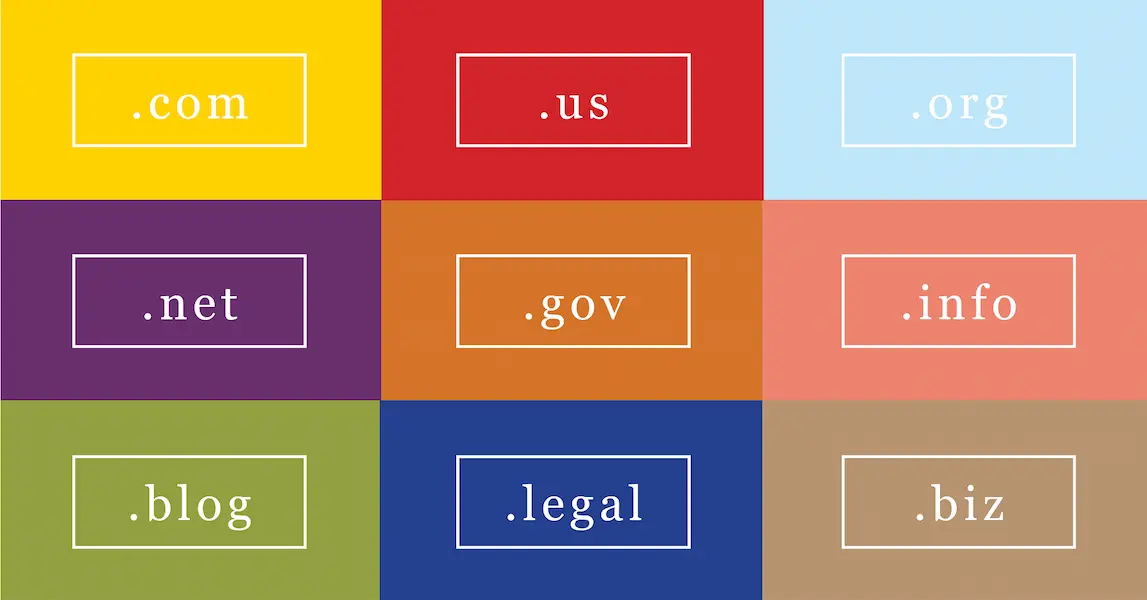Coming up as one of the first searches under Google’s algorithm is a top priority for a website and business owner. After all, people rarely click past the first page, so it’s important to pop up within the top 10 search results. While platform names are essential for SEO, website extensions are just as crucial. This article will cover the most popular domain extensions and how to choose them for SEO.
Table of Contents
What Is a Domain Extension?
To create a great page, let’s first cover what makes URLs. The string of words separated by a dot (.) that visitors place into the search bar is the website’s address on the internet. The first section (www) tells you where the website lives on the internet, the middle is the page name, and the third is the top-level domain (TLD). TLD is also referred to as the domain extension and can be used to categorize the platform. Looking at the TLD will instantly tell the user what kind of website they’re looking at. Choosing a TLD is the final step before registering a domain name.
Most people are familiar with “.com,” but there are many more options to choose from. .net, .co, .edu, .io domains are all top domain extensions. So, why would people use anything other than the classic?
Domain Extensions to Choose From
.com domains
One of the best domain extensions first began as a commercial page extension. Initially, only websites that sold certain products ended with “.com.” The internet has since changed its rules and now accepts the TLD for a variety of platforms. Since it’s a classic, many website owners hope this TLD is available when registering a platform name.
Other TLDs may boost your platform’s SEO. Choosing an extension other than the default improves the website’s uniqueness, bumping it higher in the search results.
.net Domains
Much like “.com,” this TLD is used for various platforms and is the low-cost alternative to “.com.” Internet providers originally exclusively used “.net“ and tech companies still use this TLD. This is great news if you have a focus on tech products, not so much if you sell products that sound similar. For example, cookies.net would be great for understanding web cookies but misleading for purchasing baked cookies.
.io Domains
The “.io” TLD first started as a country-specific TLD but is now widely used by software as a service (SaaS) and tech startup companies. The extension is a similar abbreviation to the computing term “input/output,” allowing visitors to know exactly the kind of platform they’re clicking on
.co Domains
“.co” is a newer version of “.com,” its younger sibling. The TLD is used for the same reasons as “.com,“ especially by websites that emphasize being trendy and succinct. Not many websites use the TLD, which adds to the originality statement.
.org Domains
This TLD is available for any company to use but these are non-profits that are traditionally associated with “.org.“ Many visitors still associate the two. That said, you’ll still see “.org” after government pages or large online communities as the TLD conveys a high-quality, trustworthy platform for information, not for consumerism.
.xyz Domains
These TLDs are gaining popularity due to their uniqueness, making them quite memorable. They are suitable for any type of website.
Industry Specific Extensions
There are also some specific
- .tv: used by TV and video-based brands;
- .fm: used by audio-based brands;
- .edu: used by educational associations;
- .info: used by information-focused pages, usually if .org is unavailable;
- .app: used for app buying/creating platforms.
Country Specific Extensions
These TLDs are sometimes referred to as local domain extensions or ccTLDs and are incredibly helpful for smaller, local businesses. ccTLDs are especially useful if the business name is similar to businesses elsewhere and you want to cater to the local community without the mixup. Some of the more popular ccTLDs include, .FR (France), .BR (Brazil), .CN (China), and .CO.UK (the UK).
TLDs to Avoid
Spamhaus is the internet’s go-to to find out if a website is legit quickly. The platform combs through platforms and adds them to a good or spam list. You would want to avoid accidentally getting on their spam radar as a business owner. The TLDs that get flagged often include:
- .cam;
- .tt;
- .win;
- .top;
- .ml;
- .camю
The above TLDs have a high bad to good extension ratio, much higher than the average page. It’s better to avoid using any of these TLDs.
To Conclude
And that’s everything you need to know when choosing domain extensions to optimize your site’s searchability. It’s just as important to consider a good TLD as it is to come up with a unique platform name. As with website names, there are some extensions that are better than others, and now you have the tools to pick the best one for your needs.

